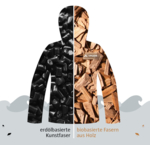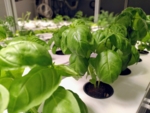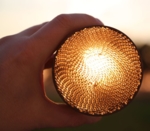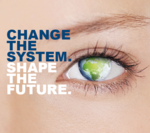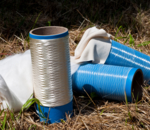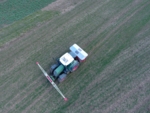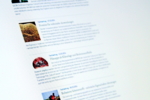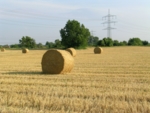-
-
-
-
-
Dossier - 17/11/2021
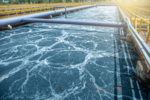
Sustainability is in vogue. And it’s not a question of wanting to be sustainable, but having to be: as the latest report from the Intergovernmental Panel on Climate Change shows, protecting the climate and the environment calls for swift action. Biorefineries that use renewable raw materials and recycle industrial raw materials are playing an important role in the bioeconomy concepts of many countries - including the state of Baden-Württemberg.
https://www.biooekonomie-bw.de/en/articles/dossiers/biorefinery-new-paths-build-our-tomorrow
-
Specialized in Sustainability - 30/09/2021
The research project RUN (Rural Urban Nutrient Partnership) explores how waste might be used more efficiently as a resource. In this project, Veronika Fendel investigates how recyclable materials from biowaste and domestic wastewater can be fed back into the material cycle in the best possible way.
https://www.biooekonomie-bw.de/en/articles/pm/circular-economy-future
-
Start-up PROSERVATION - sustainable packaging - 21/09/2021
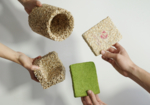
Expanded polystyrene (EPS) packaging is very practical, but it is made from petroleum and is not very environmentally friendly in other ways either. Single-use plastic containers made of EPS have therefore been banned in the EU, but alternatives are also urgently needed. The Stuttgart-based start-up PROSERVATION has developed an ecological packaging material made from grain husks that could replace EPS and be just as effective.
https://www.biooekonomie-bw.de/en/articles/news/husk-substitute-polystyrene-packaging-materials-good-conscience
-
-
-
Press release - 27/07/2021
The Hallertau is Germany's largest hop-growing region. During harvesting, hop bine chaff is left over, which is converted into environmentally friendly bio natural gas on site in a biogas plant. But that is not the end of the utilization chain for this fiber plant. Researchers at the German Institutes of Textile and Fiber Research Denkendorf (DITF) have used the plant-containing biogas digestate to produce a composite material that can be…
https://www.biooekonomie-bw.de/en/articles/pm/furniture-biogas-plant
-
-
Press release - 09/07/2021
Refuels are renewable fuels that can be produced in different ways. When they are mixed and processed such that they meet the existing fuel standards, they are suited for all types of combustion engines. This is the result of the latest vehicle and fleet tests within the project “reFuels – Rethinking Fuels” at Karlsruhe Institute of Technology (KIT). Compared to fully fossil fuels, refuel mixes allow for a CO2 reduction by 25% at least. Moreover,…
https://www.biooekonomie-bw.de/en/articles/pm/refuels-are-suited-wide-use
-
Press release - 07/07/2021
The European Union is largely dependent on imports of white phosphorus (P4), a strategic raw material for the food and pharmaceutical industries. To tackle this challenge, the newly started four-year EU-funded project FlashPhos – led by the University of Stuttgart – will recover at a large scale high-quality white phosphorus and other raw materials using sewage sludge as input material.
https://www.biooekonomie-bw.de/en/articles/pm/schatzsuche-im-klaerschlamm
-
Start-up kernique catch the zeitgeist - 29/06/2021
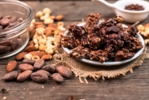
A delicious vegan nut snack that uses no sugar, artificial additives, gluten or palm oil, is full of essential nutrients, and is part of a commitment to environmental and social sustainability. Impossible? An Esslingen-based start-up called kernique proves otherwise. The start-up is currently planning a crowdfunding phase that offers a lucrative deal for investors. The idea catches the zeitgeist, but what exactly makes it stand out?
https://www.biooekonomie-bw.de/en/articles/news/nut-snack-sustainable-ecological-concept
-
-
-
Press release - 27/05/2021
The pulp of coffee beans is considered a waste product on coffee plantations, which is usually thrown away or dumped into rivers - with significant negative consequences for climate change and the environment. Macarena San Martín-Ruiz from the University of Stuttgart is working with Coopetarrazú, the largest coffee cooperative in Costa Rica, to find out how the mixture of pulp and husks can be turned into organic compost and thus protect the…
https://www.biooekonomie-bw.de/en/articles/pm/coffee-s-pulp-waste-becomes-organic-compost
-
-
-
Paper technology - 10/03/2021
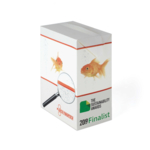
Plastic is indispensable: it is cheap and practical and found in many disposable products such as drinking straws, disposable tableware or even packaging like bonded beverage cartons or bags – and it has a disastrous effect on the environment. The start-up company Plafco Fibertech Oy has developed a sustainable plastic substitute made of paper that could replace many disposable plastic products in the future.
https://www.biooekonomie-bw.de/en/articles/news/plafco-sustainable-plastic-substitute-made-paper
-
-
-
-
-
-
Development of biogenic packaging - 16/11/2020

Modern packaging often boils down to a tick list of biogenic origin and/or biodegradability. But comprehensive sustainable packaging concepts need more than just that. Perishable foods, for example, require special barrier properties. The Albstadt-Sigmaringen University of Applied Sciences is researching packaging concepts for their sustainability.
https://www.biooekonomie-bw.de/en/articles/news/sustainable-packaging-devil-detail
-
-
rezemo GmbH - 26/06/2020
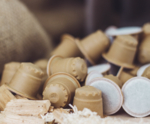
In Germany alone, around three billion disposable coffee capsules made of aluminium and plastic are sold every year. This creates a gigantic waste problem, as only a small proportion of the capsules can be recycled. Fully compostable wooden coffee capsules might be a solution to this problem. The capsules have been developed by a start-up company called rezemo, which also has other biobased packaging solutions in the pipeline.
https://www.biooekonomie-bw.de/en/articles/news/coffee-capsules-wood-instead-aluminium
-
EIP-AGRI project coordination - 12/12/2019
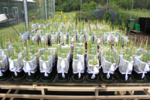
Lentil plants, rarely cultivated in Central Europe in the twentieth century, are making a comeback. The "Rhizo-Linse"1 EIP-AGRI project aims to reintroduce old lentil varieties and make them appealing to farmers. A company called nadicom Gesellschaft für angewandte Mikrobiologie mbH is working on the development of an ecological product consisting of nodule bacteria that can improve lentil plant growth.
https://www.biooekonomie-bw.de/en/articles/news/nadicom-Rhizo-Linse-project-excellent-small-fertiliser-factories
-
Biosensors - 03/12/2019
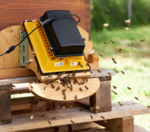
Biosensors are used in medical diagnostics and food and environmental analyses, to name just a few examples. apic.ai, a start-up based in Karlsruhe, uses honey bees as bioindicators to gain insights into the state of the ecosystem. The company also uses artificial intelligence (AI) methods for their ecotoxicological investigations.
https://www.biooekonomie-bw.de/en/articles/news/learning-from-the-bees
-
Dossier - 15/11/2019
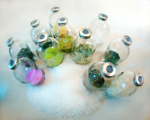
The negative image of plastic persists and is not getting any better in the face of the ongoing debate about microplastics which are basically everywhere. Plastic pollutes the environment. The globe is littered with huge quantities. We have to modify the production and utilisation of macroplastics as well as fundamentally rethink the way we dispose of them. ‘Out of sight, out of mind’ mentality must become a thing of the past.
https://www.biooekonomie-bw.de/en/articles/dossiers/waste-valuable-resource-wrong-place
-
Article - 21/10/2019
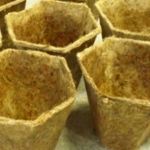
Plastic plant pots are not good for the environment; strictly speaking, they should not even be disposed of in recycling bins. Alternatives such as coconut fibre pots are compostable, but not pollutant-free and not "bio" at all. The Karlsruhe-based company Fiber Engineering has developed a truly ecofriendly way to grow plants: pots made of hemp or grass, which are preserved with biological components and decompose completely within a…
https://www.biooekonomie-bw.de/en/articles/news/pflanztoepfe-aus-naturfasern-bio-ohne-wenn-und-aber
-
-
Dossier - 15/04/2019
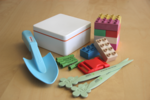
Plastic waste takes years to decompose and pollutes the environment. Nevertheless, plastics are an indispensable part of everyday life. It is therefore all the more important to find a meaningful alternative that is sustainable, environmentally friendly and has better properties and more functionality than conventional plastics. In addition, such an alternative should not be dependent in any way on fossil resources.
https://www.biooekonomie-bw.de/en/articles/dossiers/the-alternative-bioplastics
-
-
-
-
-
-
-
-
-
-
-
-
-
-
-
Website address: https://www.biooekonomie-bw.de/en/search
